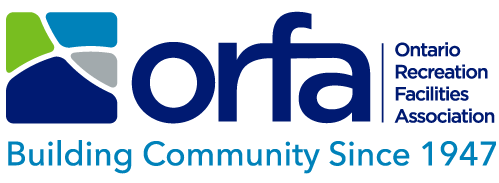- ORFA Home
- Resource Centre
- Technical Corner
- Operating Outdoor Aquatics Facilities in 2023
Technical Corner
Operating Outdoor Aquatics Facilities in 2023
January 16, 2023
Wading pools, splash, and spray pads, as well as full sized outdoor swimming natatoriums are all resting in anticipation of another busy summer season. Outdoor aquatic infrastructure plays an important role in affordable public recreation. Ensuring that this infrastructure is properly operated and managed takes some research to determine minimum compliance that is balanced with industry best practices. It is important to understand roles and responsibilities associated with these public spaces.
Aquatic facilities operation is a combination of regulatory, mechanical, electrical, chemistry and math responsibilities. The most significant challenge is that they are seasonal recreational facilities. Many times they are in the care and control of seasonal (student) staff. Making the necessary investment in training for a 16–20-week position is often not a priority by the employer and is considerable risk that senior facility administrative staff need to prioritize.
Understanding and applying Regulation 565: Public Pools (Reg. 565) is the starting point for compliance. This is then supported by the Occupational Health and Safety Act (OHSA) . If it relates to a wading, splash or spray pad, then Ontario Regulation 141/18. However, the operation of a waterslide includes Regulation 221/01 Amusement Devices Act.
Ground zero to the operation and management of these seasonal facilities begins with the pool owner who is defined in Reg. 565 as “owner” and means a person who is the owner of a public pool or spa. Under the same regulation, operation of the pool is selected by the owner as defined as 6. (1) Every owner of a public pool or public spa shall designate an operator. O. Reg. 494/17, s. 5. Which further states (2) Every operator shall be trained in public pool and public spa operation and maintenance, filtration systems, water chemistry and all relevant safety and emergency procedures. O. Reg. 494/17, s. 5.
With regards to training, there may be a natural trend for owners to gravitate towards the Pool and Hot Tub Alliance (formerly National Swimming Pool Foundation) Certified Pool Operator (CPO) training course. It’s been around since 1972 and has a high level of recognition by Public Health departments. It's affordable and can be obtained usually over a weekend. There is no doubt that CPO provides a strong theoretical introduction to aquatics. BUT it is NOT training, and it cannot be embraced as a “certification”. The definition of certification, which is the action or process of providing someone or something with an official document attesting to a status or level of achievement needs to be considered while reviewing the OHSA definition of “competent person” which means a person who, (a) is qualified because of knowledge, training and experience to organize the work and its performance, (b) is familiar with this Act and the regulations that apply to the work, and (c) has knowledge of any potential or actual danger to health or safety in the workplace.
The changes in aquatic technology, equipment, regulated responsibility and accountability for failures to meet minimum compliance has changed dramatically since 1972. Today’s recreation aquatic facility manager has a far more complex landscape to navigate with not one solution meeting every operations needs. Each must be custom designed to meet the inventory of aquatic recreational experiences.
ORFA offers the Certified Aquatic Technician (CAT) professional designation training path as a more comprehensive and provincially focused professional development opportunity. The CAT raises the knowledge of an Ontario aquatic designated operator under Reg. 565. It provides access to a variety of tools and resources that can assist in creating and maintaining all types of aquatic infrastructure. The CAT is considered the minimum industry training standard for the “owner” selected “designated operator”.
We hope to see you in class at the 2023 Spring and Fall ORFA Professional Development Programs as a opportunity to receive this dedicated Ontario based training qualification.
Comments and/or Questions may be directed to Terry Piche, CRFP, CIT and Director, Training and Research Development, Ontario Recreation Facilities Association
|
Note: The publisher, (Author(s)/General Editor(s)/Licensor(s)) and every person involved in the creation of this communication shall not be liable for any loss, injury, claim, liability or damage of any kind resulting from the use of or reliance on any information or material contained in this communication. While every effort has been made to ensure the accuracy of the contents of this communication, it is intended for information purposes only. When creating this communication, none of the publisher, the (Author(s)/General Editor(s)/Licensor(s)) or contributors were engaged in rendering legal or other professional advice. This communication should not be considered or relied upon as if it were such advice. If legal advice or expert assistance is required, the services of a competent professional should be sought and retained. The publisher and every person involved in the creation of this communication disclaim all liability in respect of the results of the any actions taken in reliance upon information contained in this communication and for any errors or omissions in the works. They expressly disclaim liability to any user of the work. |
